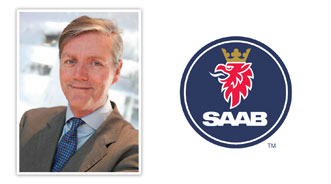Chinese Investors Back Down from Saab Deal

By subscribing, you agree to receive communications from Auto Remarketing and our partners in accordance with our Privacy Policy. We may share your information with select partners and sponsors who may contact you about their products and services. You may unsubscribe at any time.
TROLLHATTAN, Sweden –
This weekend, news came out that Saab and the Chinese investors on which it had been pinning much of its hopes for reorganization and new funding are unlikely to complete their deal.The troubled automaker revealed it has ended an agreement to sell a majority stake to two Chinese companies and is rejecting their revised offer to buy a full stake.
The failure of the business relationship with Chinese companies Pang Da Automobile Trading Co. and Zhejiang Youngman Lotus Automobile comes on the heels of other bad news for Saab’s parent company Swedish Automobile.
Late last week, the company also learned that the automaker’s voluntary reorganization filing could get thrown out of Swedish bankruptcy court. Guy Lofalk, the administrator of the reorganization, is applying for termination of the plan at the Swedish court in Vanersborg, on the grounds that the company does not have enough funds to continue the process.
In light of this recent falling out with Pang Da and Youngman, as well as the potential termination of the voluntary reorganization, the company has few options to stave off creditors and suppliers waiting to be paid.
So why did the partnership with the Chinese companies fail? According to Saab, both potential investors "failed to confirm their commitment to the Subscription Agreement," as well as additional agreements made earlier this month, which stated the Chinese investors would provide bridge funding through the automaker’s reorganization.
The Subscription Agreement ensured Pang Da and Youngman pay a combined 245 million euros, or $340 million, for 54 percent of Saab, as well as help Saab through its reorganization.
Subscribe to Auto Remarketing to stay informed and stay ahead.
By subscribing, you agree to receive communications from Auto Remarketing and our partners in accordance with our Privacy Policy. We may share your information with select partners and sponsors who may contact you about their products and services. You may unsubscribe at any time.
Moreover, besides refusing to abide by the Subscription Agreement made this past spring, Pang Da and Youngman presented an alternative transaction, which included the two companies purchasing 100 percent of the shares in Saab Automobile.
This was deemed “unacceptable” by the automaker; however, discussions between the two parties are continuing, according to officials.
Pang Qinghua, chairman of Pang Da, was quoted by Bloomberg as saying: “All plans that are beneficial for Saab should be discussed during the reorganization. We have been in touch after the weekend announcement and continue to look at new proposals.”
These new developments are particularly detrimental since problems with suppliers and creditors have been plaguing the company since this past spring. In fact, Saab’s main plant in Trollhattan, Sweden, has not produced any cars since April, also due to lack of funding.
And in September, the automaker met an even bigger roadblock. The automaker’s union took it to court in a suit that could have potentially led to the company’s bankruptcy.
As a result, chief executive officer and chairman of Swedish Automobile Victor Muller put Saab under court protection in an effort to buy more time to allow for the Chinese investments to come through.
Regarding whether or not the company will remain under court protection, Saab noted it will “apply at the court for a replacement of Mr. Lofalk as administrator,” in an effort to continue reorganization.
“Saab Automobile shall contest this application and request for continuation of the voluntary reorganization process,” the automaker stated.


